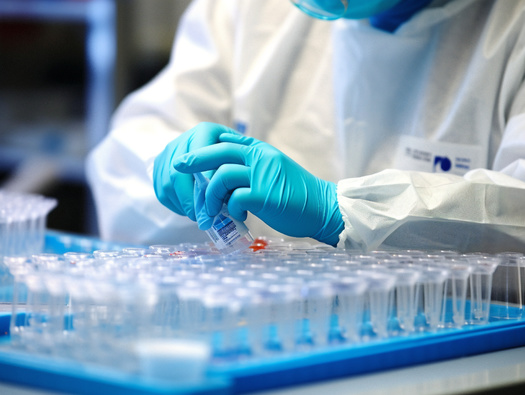Genetic studies overwhelmingly are based on data from people of European descent. But University of Maryland, Baltimore scientists are working to change that.
Researchers have developed the Genetics of Latin American Diversity database, pulling information from more than 200 genetic studies on almost 54,000 people of Hispanic and Latin descent.
Timothy O’Connor, associate professor at the University of Maryland at Baltimore School of Medicine Institute for Genome Sciences, said the diversity is important because 95% of participants in genetic studies come from northwestern Europe.
“What ends up happening as a result of that is, we have a restricted view of genetic variation that we see in the world,” said O’Connor. “Because of that, we miss out on genetic variation that might be causing a disease in one population, but not in another population.”
Even though Latino representation makes up less than 1% of genetic data, O’Connor added that the number of people in datasets is exploding.
He said that made it possible to gather so much genetic data on this population.
The University of Maryland database should save other researchers time and money they’d be using to collect this information on their own.
O’Connor said he believes the creation of this database moves past large categorizations in ancestry that are largely based on race.
“What this allows us to do is to say, ‘No these are distant cousins. These are people that are closely related at a much more fine scale,'” said O’Connor. “It moves us from this thinking about groups as kind of separate, into starting to think of everybody as kind of a continuous ancestry.”
The Census Bureau says more than 19% of Americans identify as Latino, including more than 12% of Marylanders.
Cover Photo: The University of Maryland-Baltimore’s Genetics of Latin American Diversity Database (GLADdb) includes genome-wide information from almost 54,000 Latin Americans representing 46 geographical regions. (AI-generated/Adobe Stock)
Publisher’s Notes: MD scientists create Latino genetic database for medical research was first published by Public News Service, and republished with permission.
Part of LNN’s mission is to amplify the work of others in providing greater visibility and voice to Hispanic, Latino communities.
